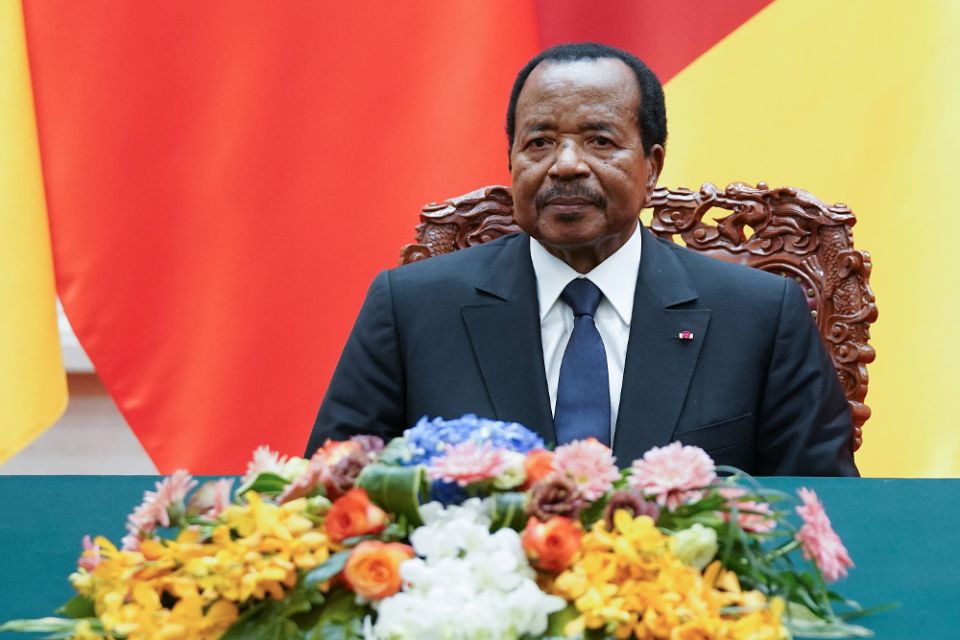How African democracy has taken root but Biya continues as the world’s longest-serving leader
A global survey by Transparency International earmarks political parties and elected representatives as most corrupt, based on perceptions. Could this viewpoint be changing across Africa as we see the political careers of some of the continent’s longest-serving leaders coming to an end?
Throughout most of 2017 the four longest-serving rulers in the world (except for royalty) were from Africa.
By the end of the year one of these strongmen, Jose Eduardo dos Santos of Angola, had stepped down and another, Zimbabwe’s Robert Mugabe, had been forced to resign. They had ruled for 38 and 37 years, respectively, and their incumbencies had been characterised by allegations of corruption.
In Botswana we saw another orderly transfer of power as Ian Khama stepped down after 10 years in office, the maximum allowed under the country’s constitution, and handed the reins to his former vice-president, Mokgweetsi Masisi, on April 1 2018.
Liberia faced a test of its constitution recently when the first elected president after its two civil wars, Ellen Johnson Sirleaf, came to the end of her two six-year terms. Elections were held in the last quarter of 2017 and, in January 2018, President George Weah, the former professional football player turned politician, was sworn in.
Except in Botswana, which has a very low corruption score based on Transparency International’s Corruption Perceptions Index 2017, these changes have heralded hopes of significant improvements, greater levels of governance and reduced corruption. As an indication of how strongman politics has dominated the African political landscape, these changes have been widely celebrated in spite of the fact that, in most cases, the appointment of a new leader has not been accompanied by a change in the ruling party. Nonetheless the reactions have been profound: in SA, there was great relief at the end of the Jacob Zuma administration and in Zimbabwe the population celebrated in the streets after Mugabe’s resignation.
New leaders have been quick to move against corruption. Though Angolan President Joao Lourenco was handpicked by his predecessor, he didn’t waste time in replacing leaders in key sectors across the Angolan economy, including the diamond and oil sector, where he sacked the former president’s daughter as head of the state-run oil company. Lourenco also replaced the heads of the central bank, police and military intelligence, seemingly tearing up a pact with Dos Santos.
In SA the Gupta family, which has deep connections with the former president, were soon facing immense pressure following the change in leadership. Dawn raids on their homes and asset seizures by the police and state legal teams coincided with Zuma’s resignation. An amnesty for corruption and gross human rights abuses may have to be part of the inducements to facilitate Joseph Kabila’s exit from power in DRC
With these positive changes to leadership and term limits becoming more entrenched across the continent, it certainly seems as if a new dawn has arrived for African politics. The recent signing by African leaders of the Continental Free Trade Area signals a positive step forward in political co-operation at an economic level. It envisages a single continental market for goods and services, which allows for the free movement of business people and investments. Ultimately, this paves the way for an African customs union. The further integration of the continent and increased influence of the AU will mean that more countries will be under pressure to improve governance and reduce corruption.
Areas of concern do persist. In Rwanda, Burundi and Uganda recent changes have allowed political leaders to extend their terms of office, and Cameroon President Paul Biya continues as the world’s longest-serving leader, with almost 43 years at the helm.
There is a rising sense that democracy is improving in Africa. This trend is aided by improved communication and a younger generation who hanker for better economic management
But the continent as a whole is improving and becoming more democratic. If one considers the Economist Intelligence Unit’s (EIU’s) extremely comprehensive Democracy Index, African nations have reduced their gap with the global average from 0.70 to 0.14 over the past eight years. The recent momentum of better government has not yet been factored into the latest EIU numbers, so this trend bodes well for the future.
It seems a new dawn has indeed arrived in Africa.
There is a rising sense that democracy is improving in Africa. This trend is aided by improved communication and a younger generation who hanker for better economic management. This perception is confirmed by the EIU Democracy Index, which rates 168 countries on a scale of 0 to 10. A country’s score is based on ratings for 60 indicators grouped in five categories: electoral process and pluralism; civil liberties; the functioning of government; political participation; and political culture.
In terms of this analysis, even countries that hold elections can be classified as “authoritarian regimes” (a score below four) if the environment is not regarded as conducive to fair votes taking place. African examples of this type of regime include Zimbabwe and Egypt.
Based on the EIU’s 2017 calculations, Mauritius — regarded as a full democracy — is Africa’s most democratic country, ranking 16th out of 168 countries, significantly ahead of the US at 21. Cape Verde (25th), Botswana (28th), SA (41st) and Ghana (52nd) make up the rest of the top five African states. All are classified “flawed democracies”.
Improvement in democracy across the continent means that less than 50% of Africans now live in authoritarian regimes, down from 74% in 2010. Sadly, half of the world’s 52 authoritarian regimes are still found in Africa, so there is still much work to be done.
Culled from Business Day





